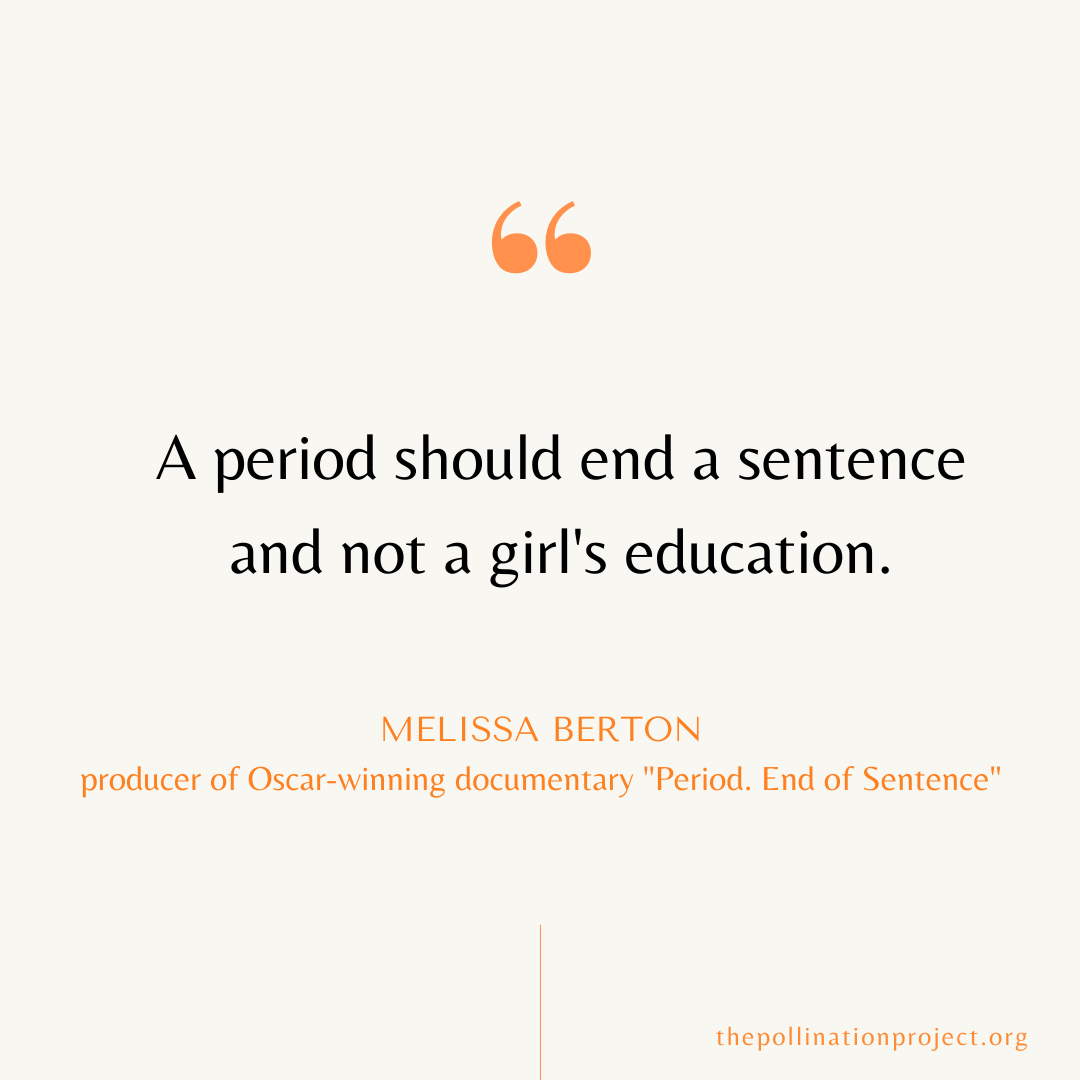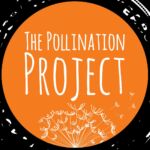Millions of women and girls in the world have little or no sanitary protection. Lack of affordability or access to period products, together with cultural taboos, cause extreme distress leaving women with no choice but to use unhealthy, unhygienic, and potentially dangerous methods such as dirty old rags, scraps of cloth, or newspapers. The Covid-19 pandemic has made the situation even worse.
Can you imagine having to choose between buying sanitary pads for you and your daughter or food for your family? Or sometimes not even having that choice?
The Pollination Project supported many changemakers who started projects to help. Grassroots leaders from different backgrounds, socio-economic situations, and parts of the world are coming up with unique approaches to address the same problem. Here are 3 of them: Qabale, Anne and Danielle.
Qabale Duba – PAPA (Pads and Pants) Project (Kenya)
Qabale Duba is the founder of Qabale Duba Foundation (QDF), a community-based organization that is empowering pastoralist girls and women in Marsabit County in northern Kenya.
In particular, the PAPA project addresses menstrual hygiene and sexual health among adolescent girls in rural schools, educating them to be more aware about their bodies and providing them with sanitary reusable pads and underwear.
“The girls who receive a year’s supply of the pads no longer skip lessons every month to attend to their physical demands. Pads are as important to school girls as pens, they can’t stay without them. When girls are able to access pads, they tend to get empowered, which then enhances their dreams, and eventually, helps in economic development. Their poor parents are not able to provide for pads and panties since even food is a huge challenge to the families.“
So far she helped more than 2,000 girls remain in school.
Anne Kukuczka – Putali Nepal (Patan, Nepal)
Anne started PUTALI in 2014 to empower girls and women in rural areas of Nepal where a general lack of safe and affordable sanitary menstrual options is resulting in serious health problems, immobility, discomfort, and absence from school and work. In addition, the topic is often regarded with embarrassment and secrecy. As a consequence, many women and girls have only little or no knowledge of their own bodies.
Anne and her team started offering workshops on menstrual hygiene management and distributing reusable menstrual cups and hygiene kits to women in Patan community, just south of Kathmandu. They also translated in Nepali an educational comic on puberty and menstruation and distributed it in the rural communities.
“We envision a world in which each woman can make informed choices regarding her body and feels comfortable with it – a world where an individual’s freedom, mobility, education and well being are not compromised by the monthly period. We believe that if women and girls get the opportunity to participate in society more equally, a huge potential for advancing humanity as a whole is created. “
Danielle Keiser – Menstrual Health Hub (Berlin, Germany)
“It’s crazy to think that periods are still a major taboo that can prevent people from participating in daily life. Why should something as natural as a reproductive vital sign hold them back?“
The Menstrual Health Hub (MH Hub) is a global and interdisciplinary Community of Practice for menstrual health actors and practitioners. Danielle realized that there are hundreds of initiatives, businesses and research projects working hard to address this issue, but most of them are not working in collaboration with others. This means that they are often duplicating efforts and missing out on good opportunities. For this reason she started this project to bring together, engage and impact the broader female health global community.
The Hub is an online platform that goes beyond the simple Menstrual Health Management to embrace a more comprehensive holistic, cross-sector and interdisciplinary approach that brings all menstrual health actors together. This includes international NGOs, grassroots organizations, researchers, policy makers, health workers, educators, investors, donors, corporations, social entrepreneurs, femtech companies, journalists and individual advocates.
To know more visit their website or watch this video.



